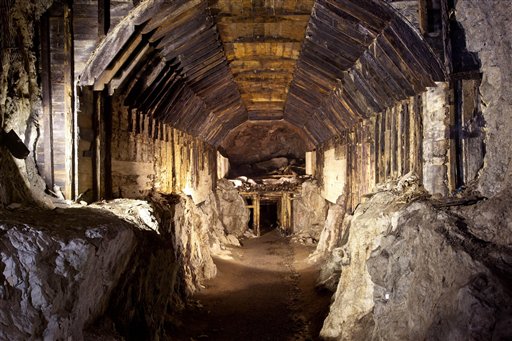The United States was absolutely correct to criticize a new Polish law that makes it a crime to blame Poland for atrocities committed by the Nazis on Polish soil. Secretary of State Rex Tillerson, while acknowledging that “terms like ‘Polish death camps’ are painful and misleading,” insisted that such false characterizations must be countered by open debate, scholarship and education, not by criminal sanctions. The new law, Tillerson said, “adversely affects freedom of speech and academic inquiry.” He’s right.
The law signed last week by Polish President Andrzej Duda says that “whoever accuses, publicly and against the facts, the Polish nation, or the Polish state, of being responsible or complicit in the Nazi crimes committed by the Third German Reich … shall be subject to a fine or a penalty of imprisonment of up to three years.”
Poland is understandably sensitive to unfair characterizations of its role in the crimes of what was, after all, an occupying power. Germans, not Poles, built and operated the death camps at Auschwitz and Treblinka. While some Poles no doubt collaborated with the Nazis, that’s no justification for besmirching the entire nation.
But criminalizing false opinions about history is inconsistent with principles of free speech and free inquiry.
To be sure, Poland isn’t alone in attempting to criminalize attempts to rewrite history. In 2012, France enacted a law making it a crime to deny that the Ottoman Turks committed genocide against Armenians in 1915. The law was later ruled unconstitutional, though it remains a crime in France — and in some other countries – to deny the Holocaust.
Poland’s new law sacrifices an important individual freedom — freedom of speech — on the altar of offended national pride.
Editorial by The Los Angeles Times
Send questions/comments to the editors.



Success. Please wait for the page to reload. If the page does not reload within 5 seconds, please refresh the page.
Enter your email and password to access comments.
Hi, to comment on stories you must . This profile is in addition to your subscription and website login.
Already have a commenting profile? .
Invalid username/password.
Please check your email to confirm and complete your registration.
Only subscribers are eligible to post comments. Please subscribe or login first for digital access. Here’s why.
Use the form below to reset your password. When you've submitted your account email, we will send an email with a reset code.